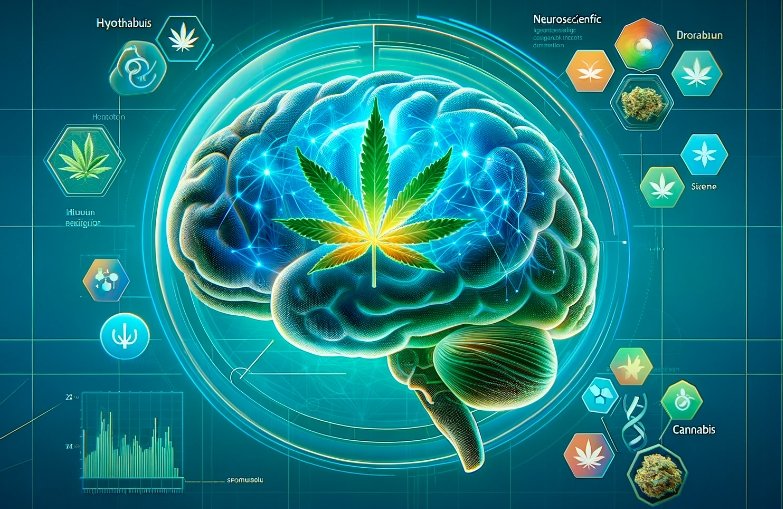Cannabis is well-known for its ability to increase appetite, but the exact process behind this effect is not fully understood. A new study by researchers at Washington State University (WSU) sheds light on how cannabis activates specific neurons in the brain that regulate food-seeking behavior.
Cannabis and the Hypothalamus
The hypothalamus is a small region in the brain that controls many vital functions, such as body temperature, thirst, hunger, sleep, and emotions. Within the hypothalamus, there are specialized neurons that produce and release hormones that influence appetite. One of these hormones is Agouti Related Peptide (AgRP), which stimulates hunger and reduces energy expenditure.
The researchers hypothesized that cannabis affects appetite by activating the cannabinoid-1 receptors (CB1R) in the hypothalamus, which in turn stimulate AgRP neurons. CB1R are part of the endocannabinoid system, a network of receptors and molecules that modulate various physiological processes, including pain, mood, memory, and appetite. Cannabis contains compounds called cannabinoids, such as tetrahydrocannabinol (THC) and cannabidiol (CBD), that can bind to CB1R and mimic or alter the effects of endocannabinoids.
Cannabis and the Rodents
To test their hypothesis, the researchers used a novel method to expose rodents to cannabis vapor, which mimics the way humans consume the drug. They then measured the rodents’ food intake, metabolic activity, and food-motivated behavior. They also used in vivo calcium imaging and electrophysiological recordings to monitor the activity of hypothalamic neurons in response to cannabis and food.

The results showed that cannabis increased food intake, metabolic rate, and food-reinforced behavior in the rodents. Moreover, cannabis activated hypothalamic neurons that expressed CB1R and AgRP, indicating that these neurons were involved in the appetite-stimulating effects of cannabis. The researchers also found that blocking CB1R or inhibiting AgRP neurons reduced the cannabis-induced feeding behavior, confirming their role in mediating the drug’s action.
Cannabis and the Implications
The study, published in the journal Scientific Reports, is the first to provide a detailed explanation of how cannabis affects appetite in vivo. The findings could have implications for developing treatments for appetite loss in chronic illnesses, such as cancer, HIV, and anorexia nervosa. Cannabis could potentially be used to stimulate appetite and improve the quality of life of patients who suffer from these conditions.
However, the researchers also cautioned that cannabis has other effects that could be harmful, such as impairing memory, cognition, and motor skills. Therefore, more research is needed to understand the benefits and risks of cannabis use, as well as the optimal dose and delivery method for therapeutic purposes.



